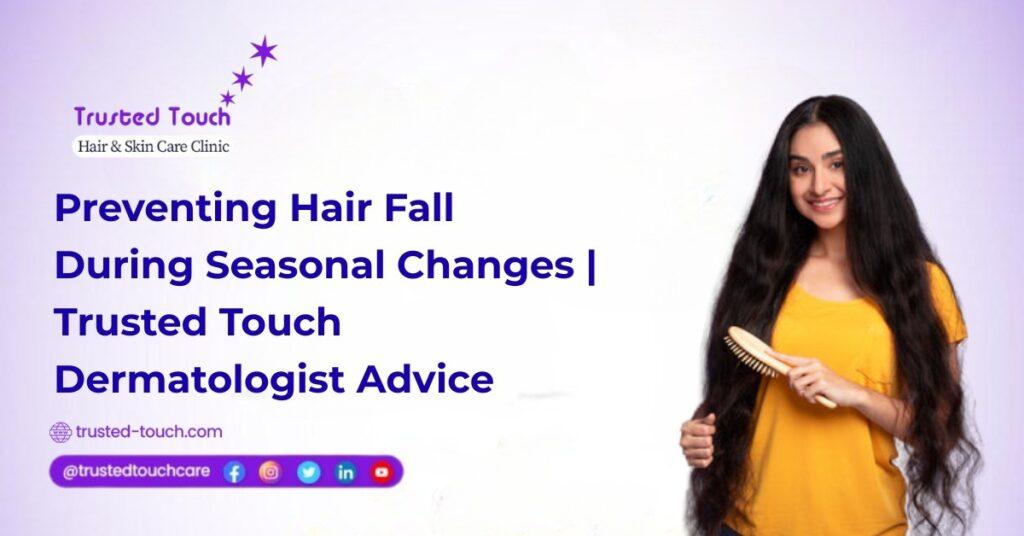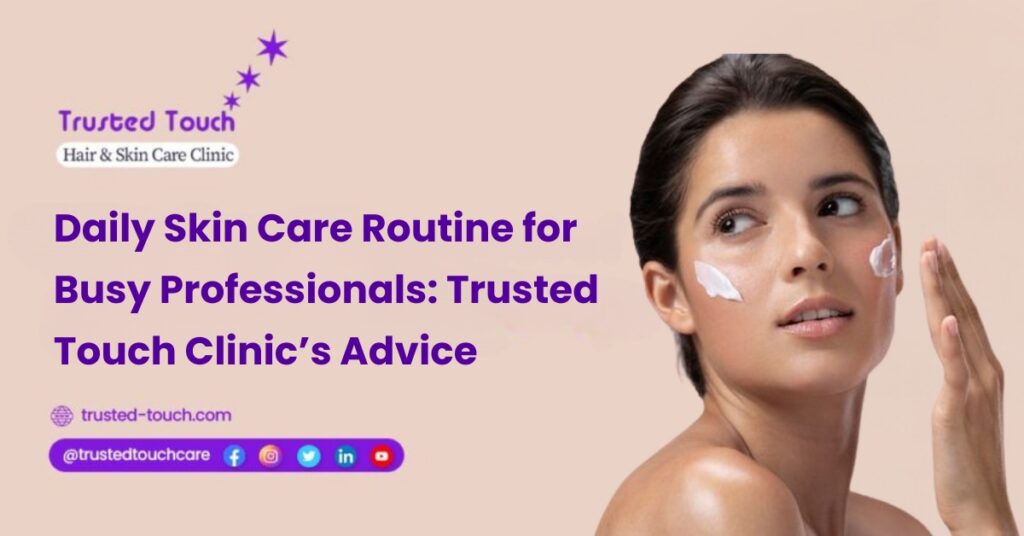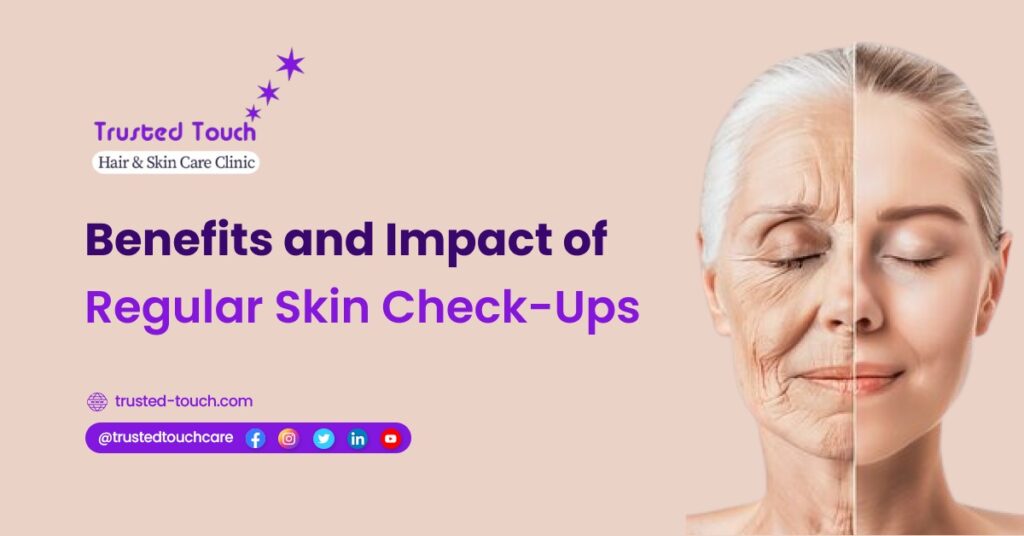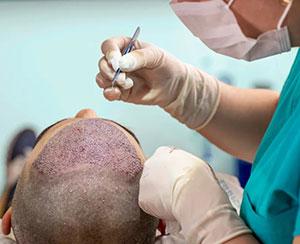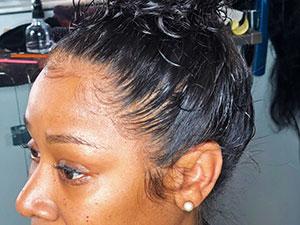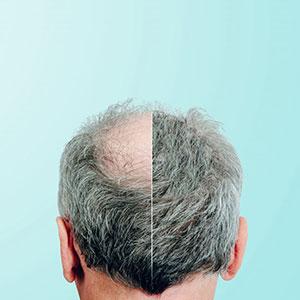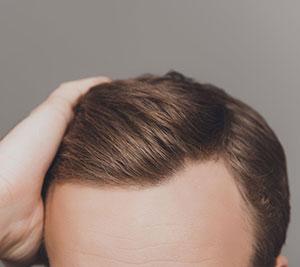Preventing Hair Fall During Seasonal Changes: Trusted Touch Clinic Advice
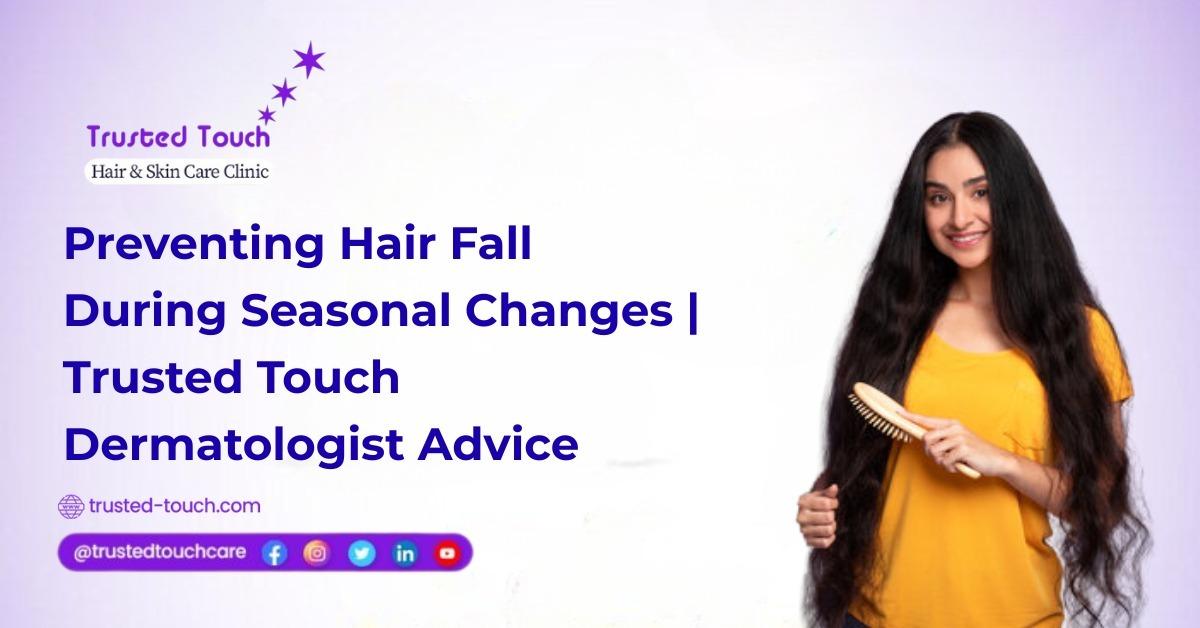
Table of Contents
ToggleIntroduction
Hair fall is one of the most common concerns people face, and it often becomes worse during seasonal changes. Whether it’s winter dryness, summer heat, monsoon humidity, or autumn shedding, your hair reacts to shifts in the environment. If left unchecked, seasonal hair fall can turn into a long-term issue. The good news? With the right knowledge and consistent care, you can prevent hair fall during seasonal changes effectively.
At Trusted Touch, we have seen countless clients struggle with these seasonal patterns. This blog explains why hair fall worsens during weather transitions, what you can do to protect your scalp and strands, and how professional treatments can strengthen your hair year-round. We’ll cover practical daily tips, advanced therapies, and dermatologist-backed insights so you can take control of your hair health.
Why Does Hair Fall Increase During Seasonal Changes?
Seasonal hair fall is not random. Each shift in climate triggers specific stressors for your hair and scalp:
- Winter – Dry air reduces moisture, leading to brittle hair and breakage.
- Summer – Heat, UV rays, and sweat weaken hair follicles.
- Monsoon – Excess humidity makes hair limp, frizzy, and prone to fungal scalp infections.
- Autumn – Hair shedding increases due to natural hair growth cycles.
Key Factors Behind Seasonal Hair Loss
- Temperature fluctuations affecting scalp blood circulation
- Low vitamin D exposure in winter months
- High humidity encouraging dandruff and scalp buildup
- Sweat and dirt clogging follicles in hot seasons
- Oxidative stress caused by UV exposure
Daily Habits to Prevent Hair Fall in Every Season
Building small but consistent habits can protect your hair against seasonal triggers.
1. Scalp Care
- Wash your hair with a mild, sulfate-free shampoo to prevent buildup.
- Massage with lukewarm oil (coconut, almond, or argan) to improve blood flow.
- Avoid excessive scratching, which can damage follicles.
2. Nutrition for Hair Health
- Eat protein-rich foods like eggs, fish, and lentils.
- Add vitamin C and E for collagen production.
- Ensure iron and zinc intake to support follicle strength.
- Drink 2–3 liters of water daily to stay hydrated.
3. Lifestyle Adjustments
- Limit heat styling tools.
- Protect hair from direct sun with scarves or caps.
- Avoid tying hair too tightly.
- Manage stress through yoga or meditation, as stress is a major cause of hair fall.
Seasonal Hair Care Routine: A Complete Guide
Here’s a season-by-season breakdown of how to prevent hair fall effectively.
| Season | Challenges | Preventive Steps |
|---|---|---|
| Winter | Dry scalp, dandruff, static | Use oil massages, hydrate, switch to cream-based conditioners |
| Summer | UV damage, sweat, frizz | Use UV-protectant sprays, wash regularly, stay hydrated |
| Monsoon | Humidity, scalp infections | Wash frequently, use anti-fungal shampoos, avoid tying wet hair |
| Autumn | Excess shedding | Follow balanced diet, gentle brushing, add supplements |
Advanced Solutions from Trusted Touch
Sometimes home remedies and routines are not enough. That’s when professional help makes a difference. At Trusted Touch, we provide scientifically proven treatments for hair fall:
1. PRP Therapy (Platelet-Rich Plasma)
-
Uses your own platelets to stimulate hair growth
-
Improves follicle strength and density
2. Mesotherapy
-
Involves micro-injections of vitamins and nutrients into the scalp
-
Boosts blood circulation and nourishes follicles directly
3. Low-Level Laser Therapy
-
Non-invasive laser light to stimulate hair growth
-
Enhances scalp health and reduces shedding
4. Hair Transplant Options
-
For chronic, irreversible hair loss cases
-
Natural-looking, long-term solution
Case Study: How Seasonal Care Prevented Hair Fall
One of our clients at Trusted Touch noticed her hair fall nearly doubled every monsoon. After evaluating her scalp, we designed a plan:
-
Anti-fungal shampoo routine
-
Biotin supplements
-
PRP sessions once a month
Within 4 months, her seasonal shedding reduced by 70%, and she regained confidence.
Myths About Seasonal Hair Fall
-
Myth: “Hair fall only happens in winter.”
Fact: Every season can trigger hair fall differently. -
Myth: “Oiling daily will stop hair fall.”
Fact: Over-oiling can clog pores; moderation is key. -
Myth: “Hair loss is purely genetic.”
Fact: Lifestyle and seasonal factors play a big role.
When to Seek Professional Help
If your hair fall continues beyond 100 strands per day even after trying home remedies, it’s time to consult experts. Signs you need medical help include:
-
Visible scalp patches
-
Sudden hair thinning
-
Excessive dandruff or scalp irritation
-
No improvement despite lifestyle changes
That’s where clinics like Trusted Touch step in with tailored treatments.
Conclusion
Seasonal changes affect everyone’s hair differently, but the underlying principle is the same: your scalp and follicles need protection. From winter dryness to monsoon humidity, your routine must adapt with the seasons. With the right mix of daily care, nutrition, lifestyle changes, and professional treatments from Trusted Touch, preventing hair fall becomes manageable.
Hair is an integral part of your identity—don’t let seasonal changes dictate its health. Take action early, stay consistent, and seek expert help when needed.
Book Your Skin Consultation Today
Experience the best skin and hair treatments at Trusted Touch Clinic in Kolkata. Ready to rejuvenate your look?
Call us at +91 9830845393 or +91 9748064549 to book your consultation.
Visit our Skin Care Services page to explore more.
Stay connected with us for the latest tips, insights, and updates on skin and hair care! Follow us on Facebook, Instagram, X (formerly Twitter), Pinterest and Google.
Rediscover your confidence with Trusted Touch Clinic, Kolkata!




